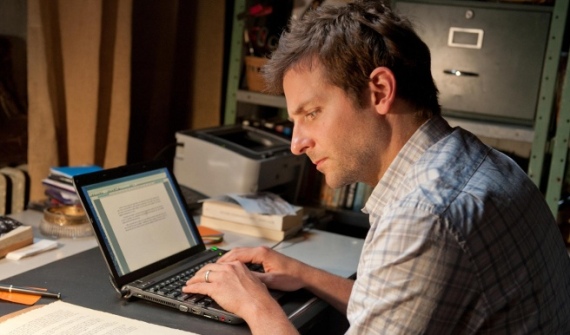Development - This is simply the process of 'finding' a story. Ideas for films come from a variety of sources, they can range from novels, real life events to computer game adaptations. Once you've got an idea you'll need someone to write a pitch for you which you take to a film producer in an attempt to get some funding to make your film. Even at this very early stage you need a very clear idea of who you're aiming you film at so you can include elements that will appeal to them.
Pre-production - Once you've got funding you establish your budget and can begin to get a film crew together, you can storyboard the script. You also need break the script down into individual scenes and identify all the locations, props, cast members, costumes, special effects and visual effects needed.
Production - This is simply the process of 'making' the film. Provided you've done your job properly in the pre-production stage making the film should be straight forward. 'Film' is very expensive and difficult to store so an increasing number of film makers are using digital cameras to save money.
Post-production - During this stage you take all the 'film' you've shot and give it to a film editor. They will then begin putting it together. Special effects will be added, a soundtrack will be added, any missing dialogue will be re-recorded and added resulting in a 'rough cut'. This will be shown to the director and a test audience who will offer feedback. Often this causes scenes to be filmed and added or removed.
Producer:
Creating a profitable film from a story/ideas.
Finding an imaginative and talented cast and crew that work well together.
Being responsible for all aspects of a film's production.
Casting Director
Decide who plays all of the casting roles in a film.
Arranging and conducting interviews and auditions with artists as well as negotiating fees and contracts for the actors and actresses who get the part.
Work with the director and producer to understand the requirements needed.
Camera Operator
Preparing and operating the camera and all its equipment.
Working with the Director and Director of Photography to achieve the visual style of the film needed.
Managing other camera department staff and communicating with Actors.
Editor
Working closely with the Director to craft the finished film.
Working in an edit suite for long hours.
Running a team of assistants and trainees on big productions.
Director
Visualising and defining the style and structure of the film and bringing it to life, the driving creative force in film production.
Carrying out duties such as casting, script editing, shot composition, shot selection and editing.
Acting as the crucial link between the production, technical and creative teams.
Editor
Working closely with the Director to craft the finished film.
Working in an edit suite for long hours.
Running a team of assistants and trainees on big productions.
Writer
Screenwriters create the script for films using a wide imagination.
They work with the other workers in film production in order to reach their intention.
Some screenwriters also direct their film which sometimes gives them a better understanding.
Film Finance
Film finance is an aspect of film production that occurs during the development stage prior to pre-production, and is concerned with determining the potential value of a proposed film. The main factors determining the commercial success of a film include public taste, artistic merit, competition from other films released at the same time, the quality of the script, the quality of the cast, the quality of the director and other parties, etc.
Production Designer
Defining and managing every visual aspect of a film. Working with the Director and Producer to produce a budget and schedule. Directing the team responsible for producing the visual elements e.g., sets and costumes
Marketing
Doing market research.
Creating marketing campaigns.
Exploring customer opinions and gaps in the market.
Looking at competitors marketing strategies.
Organising public relations events or product exhibitions.
Making sure campaigns deadlines are met.
Arranging sponsorship.
Placing adverts in newspapers, magazines, trade press and on TV and radio.
Writing and distributing posters, flyers or brochures.
Managing campaign websites and social media like Twitter and Facebook marketing.
Exhibition
Exhibition is the retail branch of the film industry. It involves not the production or the distribution of motion pictures, but their public screening, usually for paying customers in a site devoted to such screenings, the movie theatre. What the exhibitor sells is the experience of a film (and, frequently, concessions like soft drinks and popcorn). Because exhibitors to some extent control how films are programmed, promoted, and presented to the public, they have considerable influence over the box-office success and, more importantly, the reception.







No comments:
Post a Comment